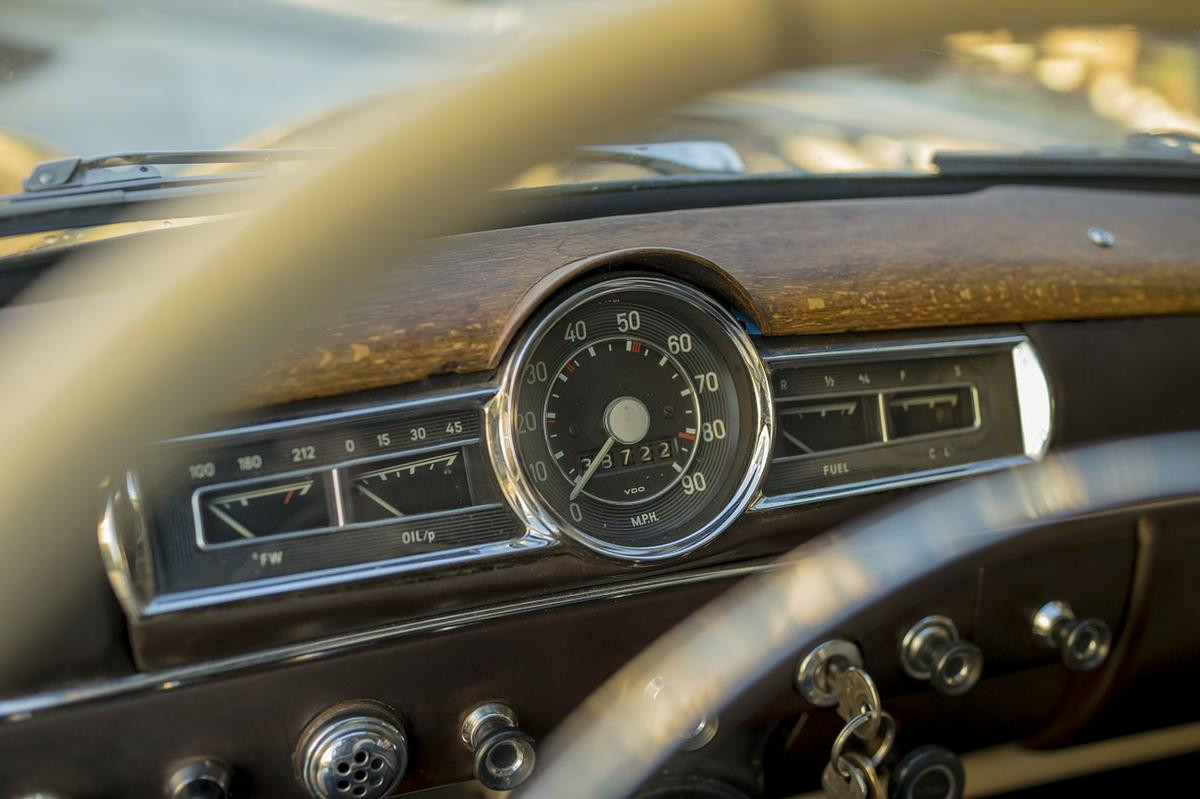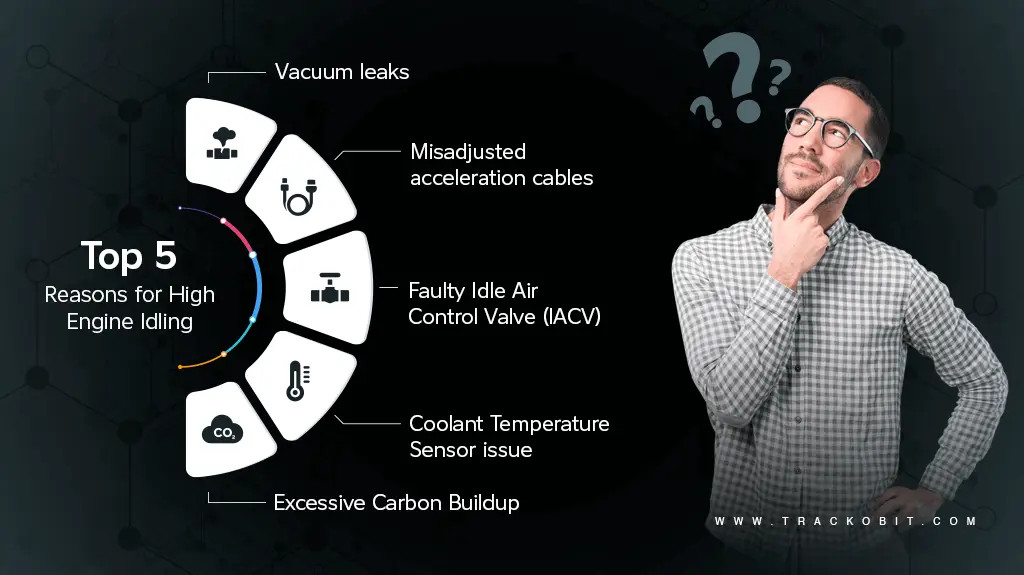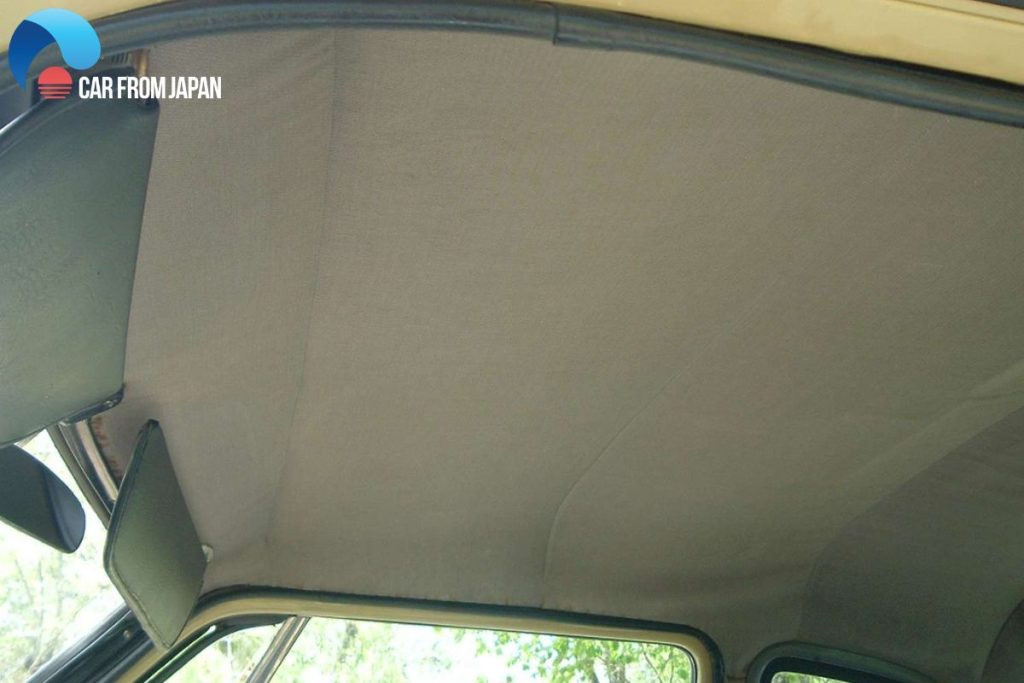Are Hyundai Cars Expensive To Fix? A Comprehensive Guide

Are Hyundai cars expensive to fix? Understanding the maintenance costs associated with your vehicle is crucial for budgeting and long-term ownership satisfaction. This comprehensive guide, brought to you by CARDIAGTECH.NET, explores the repair and maintenance expenses of Hyundai vehicles, comparing them to other brands and providing insights into factors affecting these costs. Our goal is to provide you with the knowledge to make informed decisions and keep your Hyundai running smoothly. We’ll explore overall maintenance costs, common repairs, and ways to mitigate expenses, giving you a clear picture of Hyundai ownership.
1. Understanding Hyundai Maintenance Costs
When considering the total cost of owning a car, maintenance and repair expenses play a significant role. It’s important to know whether Hyundai cars are expensive to fix compared to other brands. This section examines average maintenance costs, how they compare to competitors, and what makes up these expenses.
1.1. Average Annual Maintenance Costs for Hyundai
According to RepairPal, the average annual maintenance cost for a Hyundai is around $458. This figure encompasses routine maintenance like oil changes, tire rotations, and fluid checks, as well as unforeseen repairs. This positions Hyundai as one of the more affordable brands in terms of maintenance.
 Hyundai Engine
Hyundai Engine
Hyundai engines are known for their reliability, contributing to lower maintenance costs.
1.2. How Hyundai Compares to Other Car Brands
Compared to the average of $652 across all car brands, Hyundai’s maintenance costs are notably lower. Brands like BMW and Mercedes-Benz can average over $1,000 per year, making Hyundai a budget-friendly option. This affordability is a major factor for many car buyers.
| Brand | Average Annual Maintenance Cost |
|---|---|
| Hyundai | $458 |
| Toyota | $550 |
| Honda | $428 |
| Ford | $775 |
| BMW | $968 |
| Mercedes-Benz | $1,083 |
1.3. Factors Contributing to Maintenance Costs
Several factors influence Hyundai’s maintenance costs:
- Reliability: Hyundais are generally reliable, reducing the frequency of major repairs.
- Parts Availability: Hyundai parts are readily available and often more affordable than those for luxury brands.
- Labor Costs: Repair labor costs for Hyundais are typically lower due to their straightforward engineering.
2. Common Hyundai Repairs and Their Costs
While Hyundais are generally reliable, certain repairs are more common than others. Understanding these can help you anticipate potential expenses and plan accordingly.
2.1. Most Frequent Hyundai Repairs
Some of the most common repairs for Hyundai vehicles include:
- Oil Changes: Essential for engine health, oil changes are routine but necessary.
- Brake Pad Replacement: Brake pads wear down over time and need replacement to ensure safe braking.
- Battery Replacement: Batteries typically last 3-5 years and need replacement when they fail.
- Sensor Replacements: Sensors like oxygen and mass airflow sensors can fail and affect engine performance.
2.2. Average Costs for Common Repairs
Here’s a breakdown of average costs for common Hyundai repairs:
| Repair | Average Cost |
|---|---|
| Oil Change | $30 – $75 |
| Brake Pad Replacement | $150 – $300 |
| Battery Replacement | $100 – $250 |
| Sensor Replacement | $100 – $400 |
2.3. Model-Specific Repair Costs
Repair costs can vary depending on the Hyundai model. For example, a Hyundai Sonata might have different repair costs compared to a Hyundai Elantra due to variations in parts and labor.
| Model | Average Annual Maintenance Cost |
|---|---|
| Hyundai Sonata | $468 |
| Hyundai Elantra | $452 |
| Hyundai Tucson | $441 |
3. Are Certain Hyundai Models More Expensive to Fix?
While Hyundai as a brand is generally affordable to maintain, certain models might have higher repair costs due to their complexity, features, or specific issues.
3.1. Models with Higher Maintenance Costs
Some Hyundai models known to have slightly higher maintenance costs include:
- Hyundai Genesis (Now Genesis): As a luxury model, the Genesis has higher parts and labor costs.
- Hyundai Equus: Similar to the Genesis, the Equus is a luxury sedan with more expensive maintenance.
3.2. Reasons for Increased Costs
The increased costs for these models are due to:
- Luxury Features: Advanced technology and features require specialized parts and labor.
- Complex Engineering: More complex systems can be more challenging and expensive to repair.
- Premium Parts: Luxury models often use higher-end parts that cost more than standard Hyundai parts.
3.3. Long-Term Ownership Considerations
When considering these models, it’s important to factor in higher potential maintenance costs into your long-term ownership budget. Regular maintenance and timely repairs can help mitigate unexpected expenses.
4. How Mileage Affects Hyundai Repair Costs
As with any vehicle, mileage plays a significant role in maintenance and repair costs. Higher mileage typically means more wear and tear, leading to increased maintenance needs.
4.1. Maintenance Costs at Different Mileage Milestones
- 30,000 Miles: Routine maintenance like oil changes, tire rotations, and fluid checks.
- 60,000 Miles: More extensive services, including brake pad replacement and transmission fluid changes.
- 90,000 Miles: Timing belt replacement and other major services may be required.
- 100,000+ Miles: Increased likelihood of major repairs, such as engine or transmission work.
4.2. Common High-Mileage Repairs
Common repairs for high-mileage Hyundais include:
- Engine Repairs: Issues like leaks, worn components, and decreased performance.
- Transmission Repairs: Slipping gears, rough shifting, and complete transmission failure.
- Suspension Repairs: Worn shocks, struts, and bushings affecting ride quality and handling.
4.3. Strategies for Maintaining High-Mileage Hyundais
To keep a high-mileage Hyundai running smoothly:
- Follow the Maintenance Schedule: Adhere to the recommended maintenance schedule in your owner’s manual.
- Address Issues Promptly: Don’t delay repairs; addressing small issues early can prevent them from becoming major problems.
- Use Quality Parts: Opt for OEM (Original Equipment Manufacturer) or high-quality aftermarket parts for repairs.
5. Tips for Reducing Hyundai Repair Costs
There are several steps you can take to reduce your Hyundai’s repair costs and keep it running reliably.
5.1. Regular Maintenance and Preventative Care
Regular maintenance is key to preventing costly repairs. This includes:
- Regular Oil Changes: Keep your engine lubricated and prevent wear.
- Tire Rotations: Ensure even tire wear and extend tire life.
- Fluid Checks: Monitor and top off fluids like coolant, brake fluid, and power steering fluid.
- Brake Inspections: Regularly inspect your brakes for wear and tear.
5.2. Choosing the Right Mechanic
Selecting a qualified and trustworthy mechanic can save you money and ensure quality repairs.
- Look for ASE Certification: ASE-certified mechanics have demonstrated competence in automotive repair.
- Read Reviews: Check online reviews to gauge the mechanic’s reputation.
- Get Multiple Estimates: Obtain estimates from several mechanics to compare prices.
5.3. Using Quality Parts
Using high-quality parts can extend the life of your repairs and prevent premature failure.
- OEM Parts: OEM parts are made by the original manufacturer and ensure the best fit and performance.
- Aftermarket Parts: Choose reputable aftermarket brands that offer quality and reliability.
6. Warranty Coverage and Extended Warranties
Understanding your Hyundai’s warranty coverage can help you avoid unexpected repair costs.
6.1. Hyundai’s Factory Warranty
Hyundai offers one of the best factory warranties in the industry, including:
- 5-Year/60,000-Mile New Vehicle Warranty: Covers most components of the vehicle.
- 10-Year/100,000-Mile Powertrain Warranty: Covers the engine, transmission, and drivetrain.
6.2. Benefits of Extended Warranties
An extended warranty can provide additional coverage beyond the factory warranty, protecting you from unexpected repair costs.
- Peace of Mind: Knowing that major repairs are covered can reduce stress and financial burden.
- Coverage for High-Mileage Vehicles: Extended warranties can cover vehicles with high mileage.
- Transferability: Some extended warranties are transferable to new owners, increasing resale value.
6.3. Evaluating Extended Warranty Options
When considering an extended warranty:
- Read the Fine Print: Understand what is covered and what is excluded.
- Compare Prices: Shop around for the best rates and coverage options.
- Check the Provider’s Reputation: Ensure the warranty provider is reputable and reliable.
7. DIY Hyundai Maintenance and Repairs
Performing some maintenance and minor repairs yourself can save money and give you a better understanding of your vehicle.
7.1. Basic Maintenance Tasks You Can Do Yourself
- Oil Changes: Changing your own oil is relatively simple and can save you money.
- Air Filter Replacement: Replacing air filters is quick and easy.
- Windshield Wiper Replacement: Replacing windshield wipers is a simple task that improves visibility.
7.2. Tools and Resources for DIY Repairs
- Basic Tool Set: A basic set of wrenches, sockets, screwdrivers, and pliers is essential.
- Online Resources: Websites like YouTube and online forums offer tutorials and advice for DIY repairs.
- Repair Manuals: Purchase a repair manual specific to your Hyundai model for detailed instructions.
7.3. When to Seek Professional Help
While DIY repairs can save money, it’s important to know when to seek professional help. Complex repairs involving the engine, transmission, or electrical systems should be left to qualified mechanics.
8. Finding Affordable Hyundai Parts
Sourcing affordable parts is crucial for keeping repair costs down.
8.1. Where to Buy Hyundai Parts
- Local Auto Parts Stores: Stores like AutoZone and Advance Auto Parts carry a wide range of Hyundai parts.
- Online Retailers: Websites like Amazon and eBay offer competitive prices on Hyundai parts.
- Hyundai Dealerships: Dealerships offer OEM parts, ensuring the best fit and quality.
8.2. Comparing Prices and Quality
- Shop Around: Compare prices from different sources to find the best deal.
- Read Reviews: Check reviews to ensure the quality and reliability of the parts.
- Consider Aftermarket Brands: Reputable aftermarket brands can offer quality parts at lower prices than OEM parts.
8.3. Using Recycled or Used Parts
Using recycled or used parts can be a cost-effective option for certain repairs, but it’s important to:
- Inspect the Parts: Ensure the parts are in good condition and free from damage.
- Buy from Reputable Sources: Purchase used parts from reputable salvage yards or recyclers.
- Understand the Risks: Be aware that used parts may have a shorter lifespan than new parts.
9. The Impact of Driving Habits on Repair Costs
Your driving habits can significantly impact your Hyundai’s repair costs.
9.1. How Aggressive Driving Affects Your Car
Aggressive driving habits, such as:
- Hard Acceleration and Braking: Causes increased wear on tires, brakes, and engine components.
- Speeding: Increases the risk of accidents and damage to your vehicle.
- Neglecting Maintenance: Ignoring routine maintenance can lead to major repairs.
9.2. Safe Driving Practices to Reduce Wear and Tear
- Smooth Acceleration and Braking: Gentle acceleration and braking reduce wear on your vehicle.
- Maintaining Proper Tire Pressure: Proper tire pressure ensures even tire wear and improves fuel efficiency.
- Avoiding Rough Roads: Driving on rough roads can damage your suspension and tires.
9.3. Benefits of Fuel-Efficient Driving
Fuel-efficient driving not only saves money on gas but also reduces wear and tear on your vehicle.
- Maintaining a Steady Speed: Consistent speed reduces engine stress and improves fuel economy.
- Avoiding Idling: Excessive idling wastes fuel and increases engine wear.
- Using Cruise Control: Cruise control helps maintain a steady speed on the highway.
10. The Future of Hyundai Maintenance: Electric Vehicles (EVs)
Hyundai is increasingly focusing on electric vehicles, which have different maintenance requirements compared to gasoline-powered cars.
10.1. Maintenance Differences Between EVs and Gasoline Cars
EVs have fewer moving parts than gasoline cars, resulting in:
- Reduced Maintenance: No oil changes, spark plug replacements, or exhaust system repairs.
- Regenerative Braking: Extends brake life by using the electric motor to slow down the vehicle.
10.2. Common EV Repairs and Maintenance
Common EV repairs and maintenance include:
- Battery Maintenance: Monitoring battery health and performance.
- Brake Maintenance: Inspecting and replacing brake pads and rotors.
- Tire Rotations: Ensuring even tire wear.
10.3. Long-Term Cost Benefits of Hyundai EVs
While EVs may have a higher initial cost, they offer long-term cost benefits due to:
- Lower Maintenance Costs: Reduced maintenance needs save money over time.
- Fuel Savings: Electricity is typically cheaper than gasoline.
- Incentives and Tax Credits: Government incentives and tax credits can reduce the purchase price of EVs.
11. How to Find a Trustworthy Hyundai Mechanic
Finding a trustworthy mechanic is essential for maintaining your Hyundai.
11.1. What to Look for in a Mechanic
- ASE Certification: Ensures the mechanic has demonstrated competence in automotive repair.
- Experience with Hyundai Vehicles: Mechanics with experience working on Hyundais are familiar with their specific needs.
- Positive Reviews: Online reviews can provide insights into the mechanic’s reputation and customer satisfaction.
11.2. Questions to Ask Before Hiring
- Are you ASE certified?
- Do you have experience working on Hyundai vehicles?
- Can you provide a written estimate before starting the work?
- Do you offer a warranty on your repairs?
11.3. Red Flags to Avoid
- Refusal to Provide a Written Estimate: A reputable mechanic should provide a written estimate before starting work.
- Pressure to Approve Unnecessary Repairs: Be wary of mechanics who try to pressure you into approving repairs you don’t need.
- Lack of Transparency: A trustworthy mechanic should be transparent about the repairs and explain them clearly.
12. Real-Life Examples of Hyundai Repair Costs
To provide a clearer picture of Hyundai repair costs, here are some real-life examples:
12.1. Case Study 1: Hyundai Sonata Engine Repair
- Issue: Engine misfire due to a faulty ignition coil.
- Repair: Replaced the ignition coil and spark plugs.
- Cost: $350.
12.2. Case Study 2: Hyundai Elantra Brake Replacement
- Issue: Worn brake pads and rotors.
- Repair: Replaced the brake pads and rotors.
- Cost: $400.
12.3. Case Study 3: Hyundai Tucson Transmission Issue
- Issue: Slipping gears due to low transmission fluid.
- Repair: Flushed and replaced the transmission fluid.
- Cost: $200.
13. Hyundai Reliability Ratings and What They Mean
Understanding Hyundai’s reliability ratings can provide insights into their long-term maintenance costs.
13.1. J.D. Power Reliability Ratings
J.D. Power conducts annual reliability studies that measure the number of problems experienced per 100 vehicles (PP100). Lower scores indicate higher reliability.
13.2. Consumer Reports Reliability Ratings
Consumer Reports also provides reliability ratings based on surveys of their members. They rate vehicles on a scale of 1 to 100, with higher scores indicating better reliability.
13.3. How Ratings Correlate with Maintenance Costs
Vehicles with higher reliability ratings typically have lower maintenance costs due to fewer repairs. Hyundai has consistently improved its reliability ratings in recent years, reflecting its commitment to quality and durability.
14. Maintaining Your Hyundai: A Checklist
To keep your Hyundai running smoothly and minimize repair costs, follow this checklist:
14.1. Monthly Checks
- Check Tire Pressure: Ensure tires are properly inflated.
- Check Fluid Levels: Monitor coolant, brake fluid, and power steering fluid.
- Inspect Lights: Check headlights, taillights, and turn signals.
14.2. Scheduled Maintenance
- Oil Changes: Follow the recommended oil change interval.
- Tire Rotations: Rotate tires every 6,000 to 8,000 miles.
- Brake Inspections: Inspect brakes regularly for wear and tear.
- Fluid Flushes: Flush coolant, brake fluid, and transmission fluid as recommended.
14.3. Seasonal Maintenance
- Winter: Check battery, antifreeze levels, and tire tread.
- Summer: Check air conditioning, cooling system, and tire pressure.
15. Addressing Common Hyundai Problems
Being aware of common Hyundai problems can help you address them early and prevent costly repairs.
15.1. Common Issues and Solutions
- Engine Misfires: Replace faulty ignition coils or spark plugs.
- Brake Problems: Replace worn brake pads and rotors.
- Electrical Issues: Check fuses, wiring, and sensors.
- Transmission Problems: Flush and replace transmission fluid.
15.2. Preventative Measures
- Use Quality Fuel: Use high-quality fuel to prevent engine problems.
- Maintain Proper Fluid Levels: Keep all fluid levels topped off.
- Address Issues Promptly: Don’t delay repairs; addressing small issues early can prevent them from becoming major problems.
15.3. Resources for Troubleshooting
- Owner’s Manual: Consult your owner’s manual for troubleshooting tips.
- Online Forums: Online forums offer advice and solutions from other Hyundai owners.
- Professional Mechanics: Seek professional help for complex issues.
16. Cost-Effective Hyundai Ownership
Owning a Hyundai can be cost-effective with proper maintenance and care.
16.1. Budgeting for Maintenance
- Create a Maintenance Budget: Set aside money each month for routine maintenance and repairs.
- Track Expenses: Keep track of your maintenance expenses to identify areas where you can save money.
- Plan for Major Repairs: Anticipate major repairs and set aside money in advance.
16.2. Maximizing Resale Value
- Keep Maintenance Records: Maintain detailed records of all maintenance and repairs.
- Keep the Car Clean: Regular cleaning and detailing can help maintain the car’s appearance.
- Address Repairs Promptly: Addressing repairs promptly can prevent them from becoming major problems and affecting resale value.
16.3. Long-Term Savings Strategies
- DIY Maintenance: Perform basic maintenance tasks yourself to save money.
- Shop Around for Parts: Compare prices from different sources to find the best deals.
- Drive Safely: Safe driving habits reduce wear and tear on your vehicle and prevent accidents.
17. Debunking Myths About Hyundai Repair Costs
There are several myths about Hyundai repair costs that need to be debunked.
17.1. Common Misconceptions
- Hyundais Are Unreliable: Hyundai has significantly improved its reliability in recent years and is now considered a reliable brand.
- Hyundai Parts Are Expensive: Hyundai parts are often more affordable than those for luxury brands.
- Hyundais Are Difficult to Repair: Hyundais are generally straightforward to repair, making labor costs lower.
17.2. Setting the Record Straight
- Hyundai Offers a Great Warranty: Hyundai’s factory warranty is one of the best in the industry.
- Hyundai Maintenance Costs Are Low: Hyundai’s average annual maintenance costs are lower than the average for all car brands.
- Hyundai Is a Cost-Effective Brand: Hyundai offers a combination of affordability, reliability, and value.
17.3. Facts vs. Fiction
| Myth | Fact |
|---|---|
| Hyundais are unreliable | Hyundai has improved its reliability and is now considered a reliable brand |
| Hyundai parts are expensive | Hyundai parts are often more affordable than those for luxury brands |
| Hyundais are difficult to repair | Hyundais are generally straightforward to repair, making labor costs lower |
18. The Role of Technology in Hyundai Maintenance
Technology is playing an increasing role in Hyundai maintenance, making it easier to diagnose and repair issues.
18.1. Diagnostic Tools and Equipment
- OBD-II Scanners: These scanners can read diagnostic trouble codes (DTCs) and help identify the source of problems.
- Software Updates: Software updates can improve vehicle performance and address known issues.
- Remote Diagnostics: Some Hyundai models offer remote diagnostics, allowing mechanics to diagnose problems remotely.
18.2. Telematics Systems
Hyundai’s Blue Link telematics system offers features like:
- Automatic Collision Notification: Automatically notifies emergency services in the event of a collision.
- Remote Diagnostics: Allows mechanics to diagnose problems remotely.
- Maintenance Alerts: Provides alerts when maintenance is due.
18.3. Impact on Repair Efficiency
Technology is improving repair efficiency by:
- Faster Diagnostics: Diagnostic tools can quickly identify the source of problems.
- More Accurate Repairs: Technology helps mechanics perform more accurate repairs.
- Reduced Downtime: Faster diagnostics and repairs reduce vehicle downtime.
19. Choosing the Right Hyundai Model for Your Budget
When choosing a Hyundai model, consider your budget and maintenance needs.
19.1. Factors to Consider
- Purchase Price: The initial cost of the vehicle.
- Fuel Economy: The vehicle’s fuel efficiency.
- Maintenance Costs: The average annual maintenance costs.
- Reliability Ratings: The vehicle’s reliability ratings.
19.2. Models with Lower Maintenance Costs
- Hyundai Elantra: A compact car with low maintenance costs and good fuel economy.
- Hyundai Sonata: A mid-size sedan with affordable maintenance and a comfortable ride.
- Hyundai Tucson: A compact SUV with reasonable maintenance costs and good reliability.
19.3. Balancing Cost and Features
- Prioritize Needs: Determine your must-have features and prioritize them.
- Consider Used Models: Buying a used Hyundai can save money on the purchase price.
- Shop Around: Compare prices and features from different dealerships.
20. Seeking Expert Advice from CARDIAGTECH.NET
Maintaining your Hyundai doesn’t have to be a daunting task. With the right knowledge and resources, you can keep your vehicle running smoothly and minimize repair costs. At CARDIAGTECH.NET, we understand the challenges you face as a technician or shop owner. You need reliable, efficient tools to get the job done right, every time.
Are you struggling to keep up with the demands of your shop? Do you need tools that can enhance your efficiency and accuracy?
Contact CARDIAGTECH.NET today for expert advice and solutions tailored to your needs. Our team can help you find the right tools and equipment to enhance your efficiency, reduce repair times, and ensure customer satisfaction.
- Address: 276 Reock St, City of Orange, NJ 07050, United States
- WhatsApp: +1 (641) 206-8880
- Website: CARDIAGTECH.NET
Let CARDIAGTECH.NET be your partner in success. Reach out today and discover how we can help you elevate your automotive repair business.
FAQ: Are Hyundai Cars Expensive To Fix?
1. Are Hyundai cars generally expensive to fix?
No, Hyundai cars are generally not expensive to fix. Their average annual maintenance cost is lower than the average for all car brands.
2. How do Hyundai maintenance costs compare to other brands?
Hyundai maintenance costs are lower than many other brands, including luxury brands like BMW and Mercedes-Benz.
3. Which Hyundai models are the most expensive to fix?
Luxury models like the Hyundai Genesis (now Genesis) and Hyundai Equus tend to have higher maintenance costs due to their complex features and premium parts.
4. What are the most common Hyundai repairs?
The most common Hyundai repairs include oil changes, brake pad replacements, battery replacements, and sensor replacements.
5. How does mileage affect Hyundai repair costs?
As mileage increases, maintenance costs tend to rise due to increased wear and tear on components like the engine, transmission, and suspension.
6. What can I do to reduce my Hyundai repair costs?
Regular maintenance, choosing a qualified mechanic, using quality parts, and practicing safe driving habits can help reduce repair costs.
7. What is Hyundai’s factory warranty?
Hyundai offers a 5-year/60,000-mile new vehicle warranty and a 10-year/100,000-mile powertrain warranty.
8. Are Hyundai electric vehicles (EVs) expensive to maintain?
Hyundai EVs generally have lower maintenance costs than gasoline cars due to fewer moving parts and regenerative braking.
9. How can I find a trustworthy Hyundai mechanic?
Look for ASE certification, experience with Hyundai vehicles, positive reviews, and transparency in pricing and repairs.
10. Where can I buy affordable Hyundai parts?
Affordable Hyundai parts can be found at local auto parts stores, online retailers, and Hyundai dealerships.







